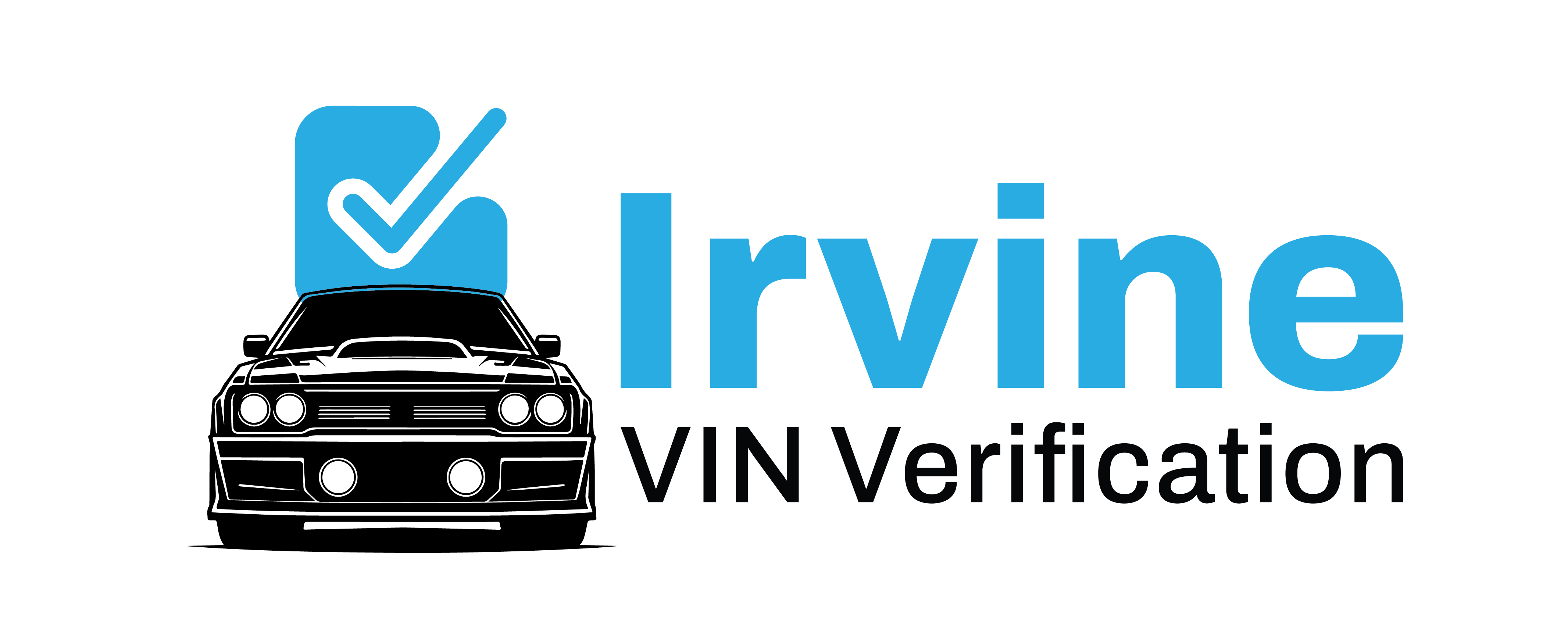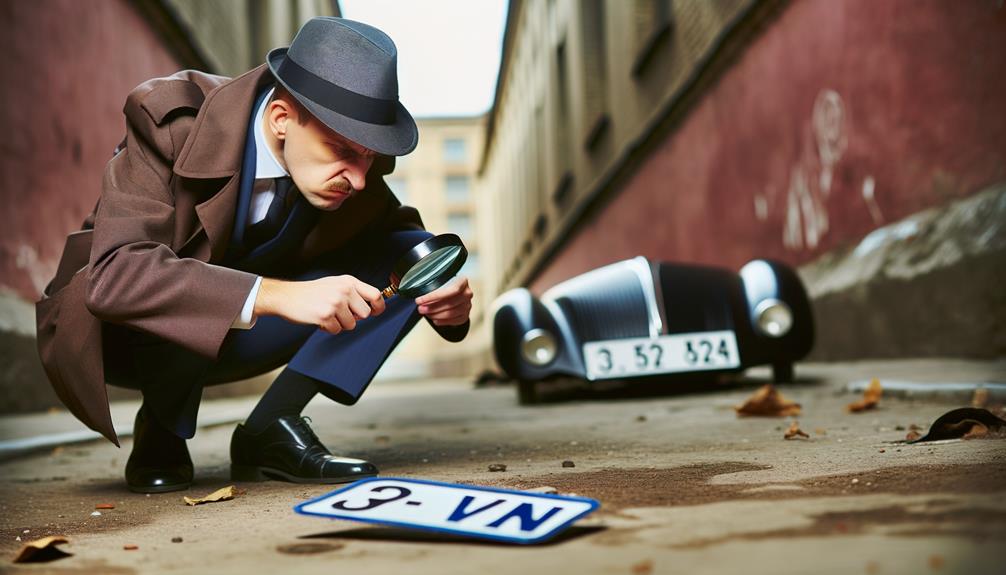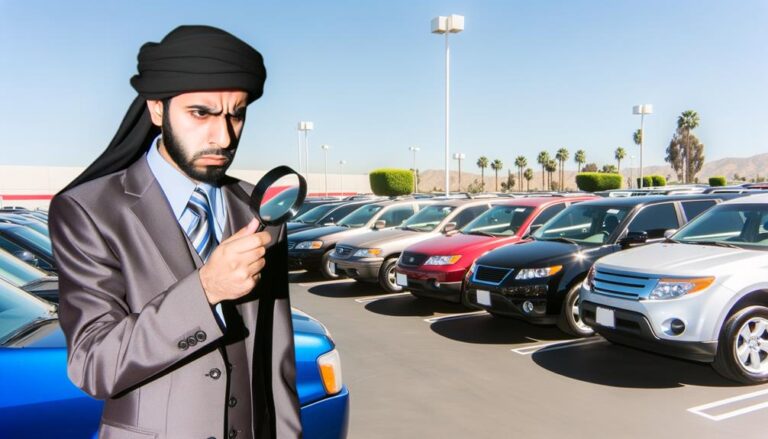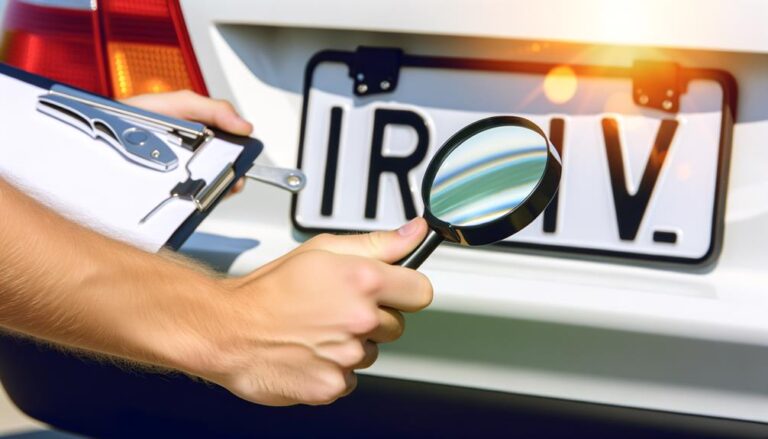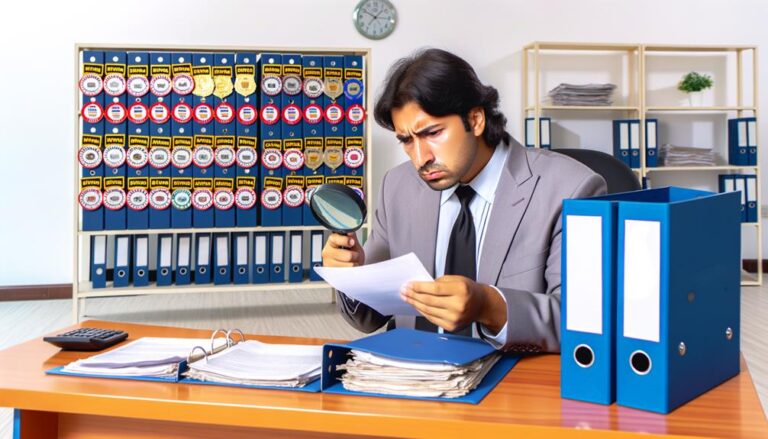VIN verification is crucial for you because it helps prevent vehicle fraud by ensuring the car you're interested in hasn't been stolen or illegally altered. By checking the unique 17-character VIN against national and state databases, you can understand a vehicle's history and avoid buying a car with hidden issues. This process also helps law enforcement track down stolen vehicles and exposes VIN cloning, where stolen cars are masked with a legitimate VIN. Additionally, VIN checks boost consumer confidence by confirming the vehicle complies with legal standards. Understanding the benefits and importance of this process can lead you to make safer, more informed decisions.
Understanding VIN and Its Significance
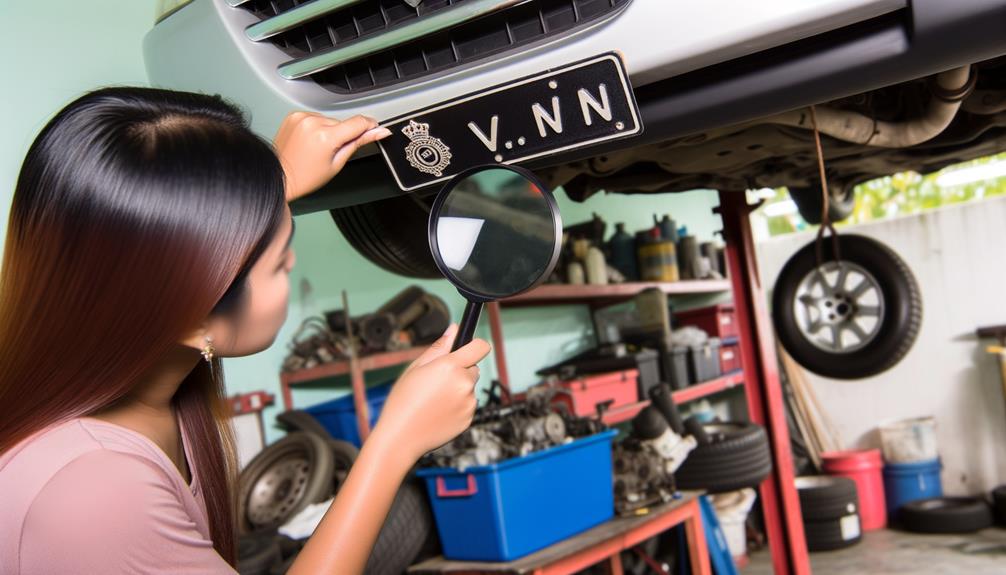
Understanding the Vehicle Identification Number (VIN) is fundamental for anyone involved in buying or selling vehicles. This unique 17-character code isn't just a series of random letters and numbers; it's your freedom key to revealing a vehicle's past. By decoding the VIN, you can tap into a wealth of knowledge about the vehicle's history, confirming that what you're getting is legit and above board.
The VIN verification process is an important step to prevent vehicle fraud. When you verify a VIN, you're cross-referencing the vehicle's records against state and national databases. This not only bolsters compliance with state regulations but also shields you from the risks of buying tampered vehicles. It's about having the confidence that you're not inadvertently purchasing a stolen vehicle, thereby dodging potential legal headaches.
Additionally, VIN verification is a significant process required for vehicle registration in California, especially when bringing in vehicles from out of state or when changing vehicle specifics like body type or fuel type. This guarantees that all details conform to legal standards and helps maintain accurate vehicle identification records.
Moreover, accurate vehicle records boost consumer confidence. You want to drive off knowing you've made a smart, informed choice, right? That's what VIN verification offers. It's not just about fulfilling a formality; it's about securing your peace of mind. Confirming that the VIN matches up across various records verifies that the vehicle standing before you is exactly what it's purported to be, free from shadows of doubt.
Detecting and Preventing VIN Fraud
One can never be too cautious when dealing with vehicle transactions, as VIN fraud poses a serious risk to both buyers and sellers. By engaging in accurate VIN verification, you're taking an essential step in preventing vehicle fraud that could save you from hefty financial and legal headaches down the road.
Detecting VIN cloning is important. This type of fraud involves masking stolen vehicles with legitimate VINs copied from similar models. During the verification process, discrepancies spotted between the physical VIN on the vehicle and those recorded in state and national databases can reveal stolen vehicles, greatly reducing the risk of inadvertently purchasing a hot car.
Furthermore, a thorough visual inspection of the VIN not only matches it against official documentation but also checks for signs of tampering. Altered VINs are a telltale sign of foul play. Remember, tampering with a VIN isn't just dubious; it's illegal and carries serious penalties, including fines and jail time.
For vehicles coming from outside the state or undergoing considerable modifications, VIN verification is essential for guaranteeing compliance with regulatory standards and maintaining accurate state records.
Lastly, don't overlook VIN history reports. These documents are invaluable in uncovering past ownership issues, accidents, and potential fraud indicators, guaranteeing that the vehicle's backstory is transparent.
Together, these strategies fortify your defenses against insurance fraud and secure a liberated and safe vehicle purchase experience.
Benefits of Regular VIN Checks
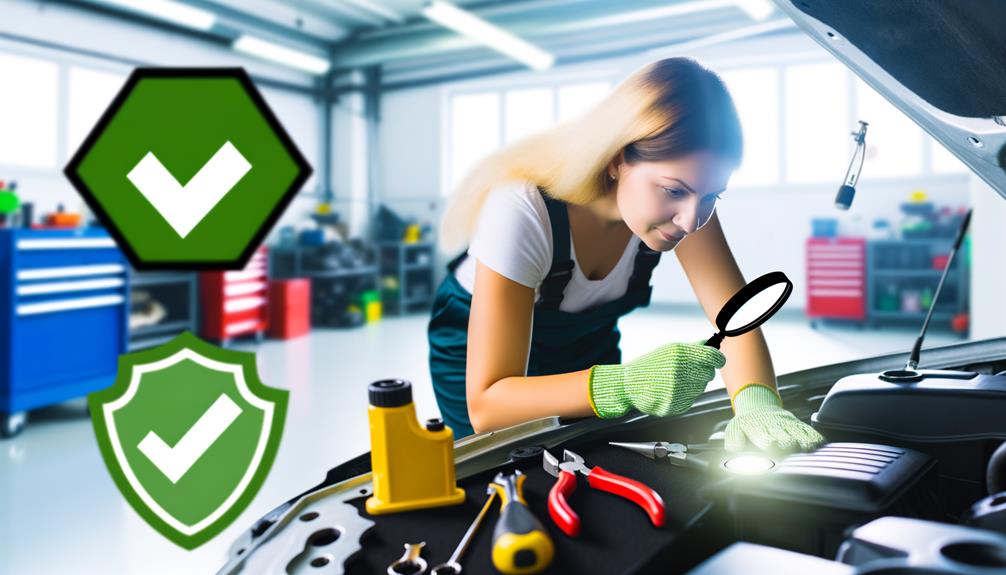
Regular VIN checks are crucial for safeguarding against vehicle fraud and theft. When you're in the market for a used car, you want the freedom to choose wisely, without fear of hidden problems. VIN verification gives you that power, providing access to detailed vehicle history reports. These reports not only reveal past ownership but also disclose any discrepancies such as previous accidents or VIN cloning—a tactic where fraudsters replicate legitimate VINs on stolen vehicles.
Including a VIN Verification guarantees the vehicle's identity matches the title, adding an extra layer of security and compliance.
By regularly checking the VIN, you're not just identifying stolen vehicles; you're also assuring compliance with state regulations. This isn't just about dodging fines—it's about maintaining your freedom to operate your vehicle without legal headaches. Engaging in routine VIN checks deters vehicle fraud and keeps the market honest, supporting trust in transactions.
Think of VIN verification as your shield against the chaos of the used car market. It protects you from the pitfalls of purchasing illegally obtained vehicles and helps in recovering stolen vehicles, considerably reducing your risk of falling victim to fraud.
It's a simple step, but it's your best defense in maintaining both market integrity and your peace of mind.
Legal Aspects of VIN Verification
While it may seem straightforward, altering a Vehicle Identification Number (VIN) is a serious offense in California, classified as a misdemeanor under Vehicle Code 10750. If you're caught, you could face up to a year in jail and fines of $1,000.
It's not just about avoiding penalties; it's about ensuring that you're not inadvertently part of vehicle fraud.
Delving deeper, knowingly misrepresenting a VIN carries even harsher consequences under Vehicle Code 10802, classified as a felony. This could land you between 16 months to 3 years in prison and fines up to $25,000.
The legal implications are severe because VIN tampering often links to broader fraudulent activities, like theft or sale of stolen vehicles.
California's strict enforcement of VIN verification during vehicle registration isn't just bureaucratic red tape.
It's an essential measure that aligns with state regulations to maintain accurate vehicle records, ensuring compliance and safeguarding consumer rights.
This process helps prevent the chaos and loss that come from VIN tampering and keeps the vehicle market fair and transparent.
Role of Professional VIN Verifiers
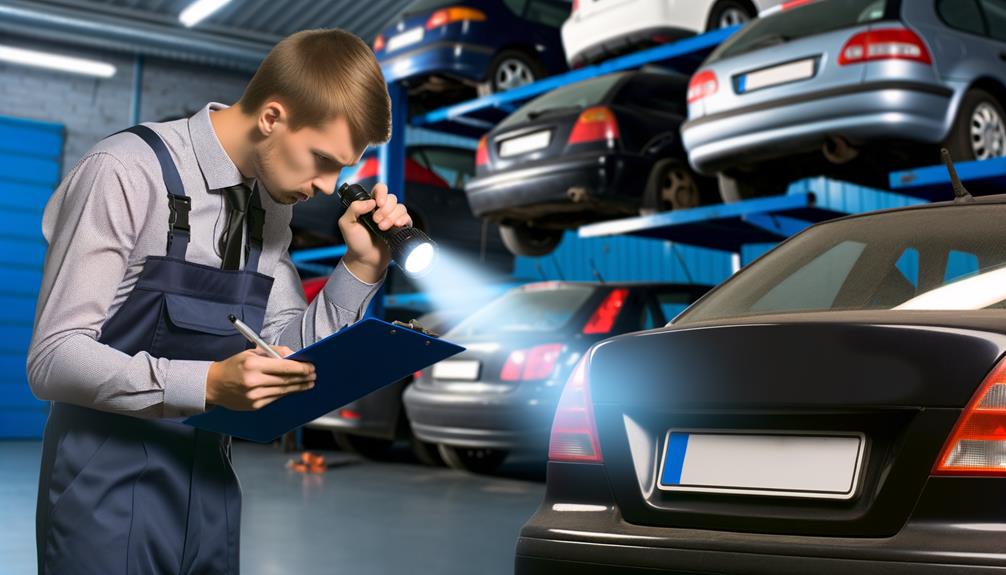
Amid the complexities of vehicle registration and fraud prevention, professional VIN verifiers play an essential role. When you're diving into the world of vehicle transactions, it's vital to guarantee the vehicle you're eyeing is legitimate. That's where professional VIN verifiers come in. These experts, including licensed notaries and deputy sheriffs, are your frontline defense against fraudulent activities.
By conducting detailed inspections and using tools like the REG 31 Form, these verifiers confirm the authenticity of a vehicle's VIN, aligning everything with state compliance requirements. This process isn't just about ticking boxes; it's about safeguarding your freedom to choose a vehicle without falling into traps set by scammers.
These professional verifiers are significant in spotting discrepancies that might indicate vehicle cloning or misrepresentation. Their expertise supports law enforcement in tracking down stolen vehicles, thereby helping to keep the community safer.
Additionally, their rigorous checks boost consumer confidence, making sure you can trust the legality and history of your vehicle.
In essence, engaging professional VIN verifiers means you're not just buying a car; you're investing in peace of mind, knowing that your vehicle stands up to scrutiny and meets all legal standards.
DIY VIN Verification Methods
You can take charge of verifying a vehicle's authenticity before making a purchase by employing some straightforward DIY VIN verification methods.
Start with a visual inspection of the Vehicle Identification Number (VIN) on the dashboard. Verify it matches the VIN on the title and registration documents. This simple step is your first line of defense against fraud.
Next, tap into online resources like Carfax or AutoCheck. These services allow you to access a vehicle's history, including previous ownership and accident records, by entering the VIN. It's a quick way to verify the car's authenticity and uncover any potential issues hidden in its past.
Don't overlook the importance of the REG 31 form, especially if you're in California. This document is essential for VIN verification and should be filled out accurately, reflecting all necessary details about the vehicle.
Also, be vigilant for signs of tampering. Mismatched fonts or irregularities in the VIN characters could suggest fraudulent alterations.
To bolster your check, cross-reference the VIN with state and national databases to confirm the vehicle hasn't been reported stolen or involved in fraud.
With these steps, you're well on your way to verifying the vehicle you're interested in is legitimate and free of fraud.
Reporting Suspected Vehicle Fraud
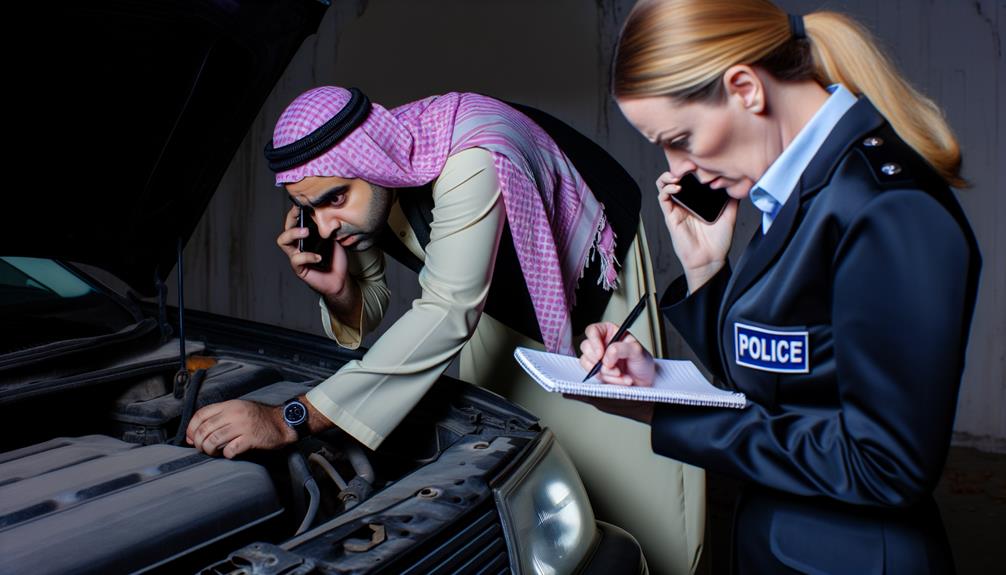
If you suspect vehicle fraud, it's vital to report it immediately to help law enforcement investigate and possibly recover stolen vehicles. When you're armed with information like a mismatched vehicle identification number (VIN), or you've spotted discrepancies during a VIN verification, you're not just protecting yourself; you're upholding the freedom and security of the entire automotive market.
In California, where over 20,000 vehicles are reported stolen each year, your vigilance can greatly bolster prevention efforts. Don't hesitate to contact the California DMV or the local Motor Vehicle Fraud Unit. These bodies are essential in addressing vehicle fraud, including title fraud, ensuring that criminals are penalized swiftly.
Similarly, in Florida, the FLHSMV Motor Vehicle Fraud Unit emphasizes the urgency of reporting. If you're in Orange County, remember that Form HSMV 80122 is vital for reporting title discrepancies.
This formality isn't just bureaucratic red tape; it's a tool that sharpens the response time of authorities and cuts down the chances of fraudsters slipping through the net.
Future Trends in VIN Verification
The integration of advanced technologies such as AI and machine learning is set to revolutionize VIN verification, enhancing the speed and accuracy of fraud detection. You'll see automated VIN verification tools become commonplace, swiftly cross-referencing vehicle identifiers against expansive national databases. This means you can spot potential frauds before making a purchase, safeguarding your freedom to choose a legitimate vehicle.
Imagine checking a car's history on the go; mobile VIN verification applications are on the rise, empowering you and law enforcement to perform immediate, on-site checks. This boosts accessibility and trust, guaranteeing you're not tied down by lengthy, uncertain verification processes.
Looking ahead, the adoption of blockchain technology promises to transform how vehicle histories are recorded. By creating immutable records, blockchain minimizes the risks of VIN fraud, offering you a more secure marketplace. This shift not only protects your interests but also enhances consumer trust across the board.
As awareness grows, so does the demand for more robust verification services. You'll witness a surge in sophisticated methods to detect data anomalies, guaranteeing that VIN verification remains a reliable shield against fraud.
This continuous innovation guarantees you maintain control, making informed decisions in a transparent vehicle market.
Frequently Asked Questions
Can VIN Verification Impact My Car Insurance Rates?
Yes, VIN verification can impact your car insurance rates. By confirming your vehicle's identity, it may lower your rates since it reassures insurers that your car isn't stolen or involved in fraud.
How Often Should VIN Verification Be Performed?
You should perform VIN verification at least annually or whenever you're buying or selling a vehicle. It guarantees everything's legit and protects your freedom to make safe, informed vehicle transactions. Don't skip it!
Are There Any Costs Associated With VIN Verification?
Yes, you'll typically face some costs for VIN verification, often paid to a certified inspector or at a DMV office. These fees cover the service of confirming your vehicle's legitimacy.
What Do I Do if My VIN Appears Altered?
If your VIN looks altered, report it immediately to local authorities and your insurance company. They'll investigate to guarantee the vehicle's legitimacy, protecting you from potential fraud and legal issues. Don't hesitate to act!
Can VIN Verification Differ by State or Country?
Yes, VIN verification can vary by state or country, as local regulations dictate the process. You'll find different methods and requirements depending on where you're registering or inspecting your vehicle. Always check local guidelines.
